
In 1991 the well known Women’s Health Initiative Study was begun to determine the safety and efficacy of HRT (Hormone Replacement Therapy). The study was stopped early (2001) when the researchers found that the subjects given the synthetic hormones had a greater incidence of coronary heart disease, breast cancer, stroke, and pulmonary embolism than the subjects on placebo. Unfortunately the prescribing of synthetic hormones by allopathic doctors still continues along with less than desirable outcomes and inherent health risks.
More women are now seeking a Functional Medicine approach using natural nutritional supplements to restore balance in the whole Endocrine System: Hypothalamus>Pituitary>Adrenal (HPA Axis) - Thyroid - Sex Hormones. Prescribing Bio-identical Hormones, even though more natural, also does not incorporate the upper level glands of the Endocrine System. Natural balance cannot be achieved by artificially treating only one component of the system. Thorough diagnostics and effective treatments require that we consider the entire Endocrine System for the very best outcomes. Most women who are on hormone replacement prescriptions can admit that they haven't experienced the relief of their hormone-related symptoms that they hoped to achieve.
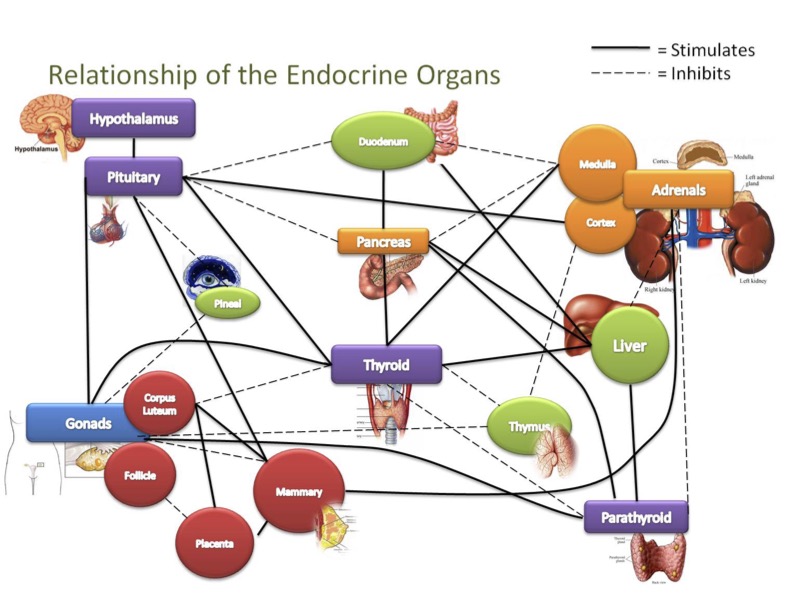
The biggest missing piece of the puzzle is usually always the Adrenal Stress System. Anyone who experiences prolonged stress has adrenal exhaustion or “Adrenal Burnout". Optimum adrenal gland function is absolutely essential for healthy sex hormone balance, in both men and women, because the adrenal glands are the master precursor glands that control the function of all hormones through the HPA Axis (Hypothalamus-Pituitary-Adrenal)https://salonspabenefits.com/cialis-
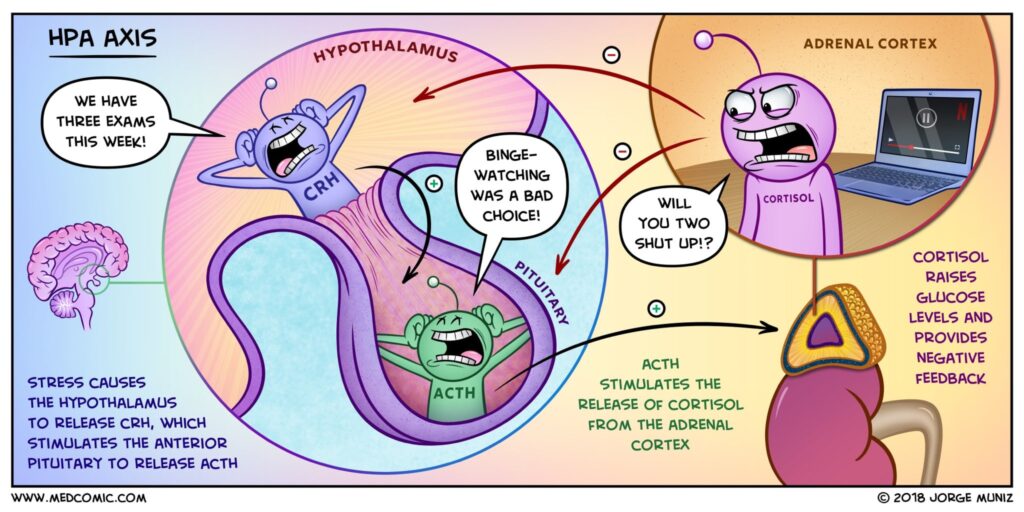
To determine if Adrenal Dysfunction is at the root of your chronic hormone-related issues, we can have you tested either through saliva testing with DiagnosTechs Labs or another option: Analytical Research Lab's Hair Minerals Analysis. The severity of your condition and analysis of your health history will help us make the right choice for you.
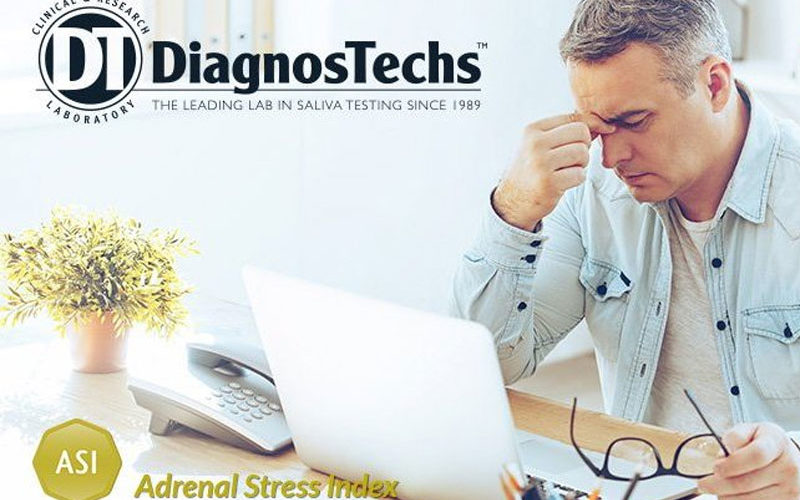
Natural hormone balancing through Adrenal Regeneration can bring about great relief and resolve many health issues including: chronic pain, increased belly fat, digestive issues, mental and emotional distress, chronic fatigue, fibromyalgia, and even infertility.
Once the Adrenals are regenerated along with the Thyroid (as determined by a follow up lab test), Sex Hormone imbalances can then be evaluated for the need for any further testing and treatment. Women patients with more challenging hormone issues such as PCOS or infertility may require more extensive testing such as the Expanded Cycling Female Hormone Panel (DiagnosTechs) which requires 11 days of saliva collection throughout a full cycle. This is a very important test that can reveal causative factors of infertility.
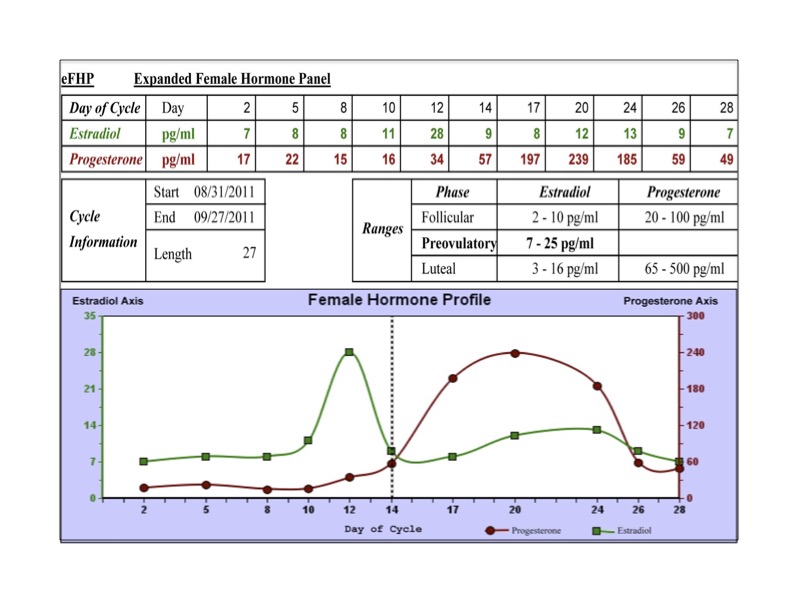

Menopause
Did you know? 40% of women worldwide have surgical intervention for menopause. 49-52 years old is the average age of menopause in the US. 7-10 years is how long the transitional period (peri-menopause) can take to complete. Estrogen levels can raise to 20-30% higher during peri-menopause compared to pre-menopause. The final 1-2 years before post-menopause can have the most erratic fluctuations of estrogen. The adrenal glands and ovaries are closely connected; both produce steroid hormones. During menopause, when ovarian production of hormones is diminishing, the adrenal glands must pick up the slack. Reduction of circulating estrogen contributes to several unpleasant symptoms including: irregular menstrual cycles, depression, mood swings, mental fogginess, urogenital issues, decreased libido, skin conditions, muscle and joint issues, osteoporosis, hot flashes/night sweats, and insomnia.
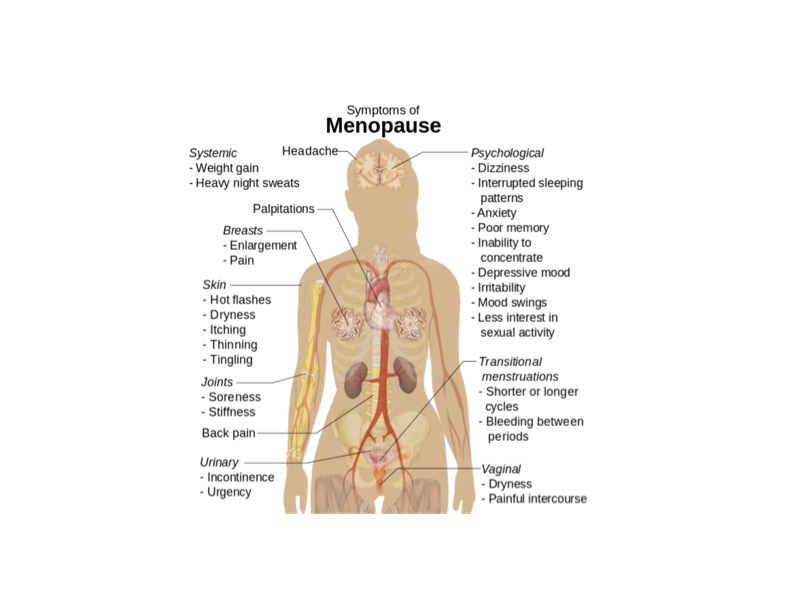
When adrenal function is compromised, weight gain in the lower abdominal area often occurs. For accurate lab testing of hormones in difficult menopausal issues, saliva testing is superior to blood testing since saliva shows free or unbound hormones, is not affected by changes in Sex Hormone Binding Globulin (SHBG), and can show hormone excesses where serum cannot. Our lab of choice for accurate Hormone Testing is DiagnosTechs Labs for peri-menopausal women: Expanded Peri Menopause Hormone Panel, and for post-menopausal women: Expanded Post Menopause Hormone Panel. Effective natural nutritional therapies include: whole food concentrates (supplements) to nourish depleted endocrine glands, strong adaptogenic herbal supplements to restore balance to low functioning glands in the HPA Axis, and regenerative nutritional support for the liver is usually always a necessity. Many of our Peri-menopausal and Post-menopausal women patients have been able to escape the misery so common to many in this age group and enjoy life again with our Natural Hormone Balancing treatment programs.
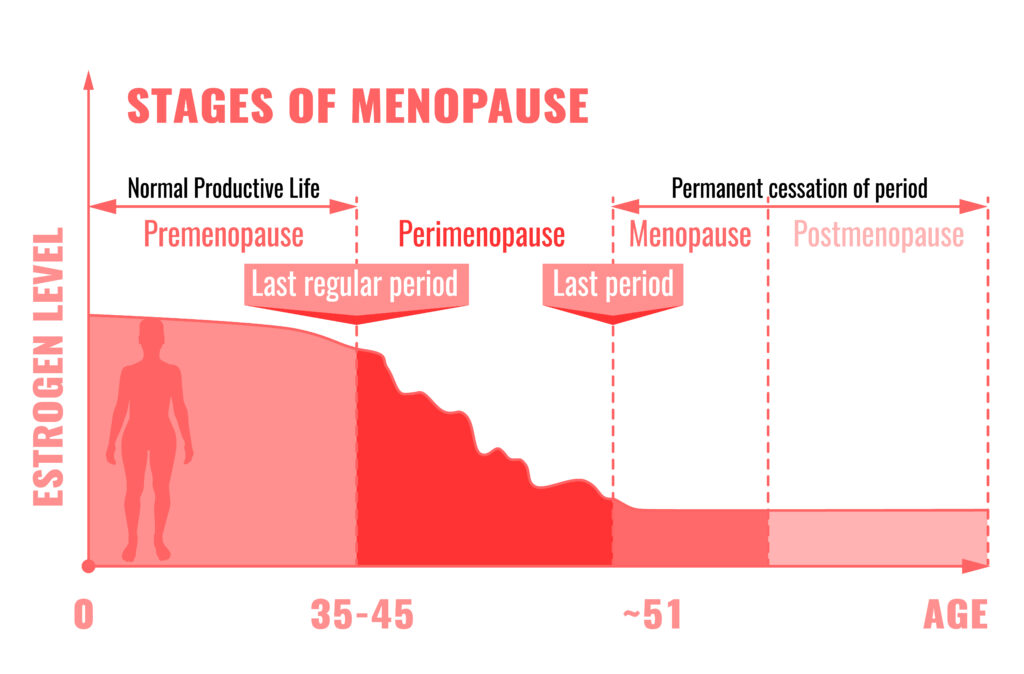
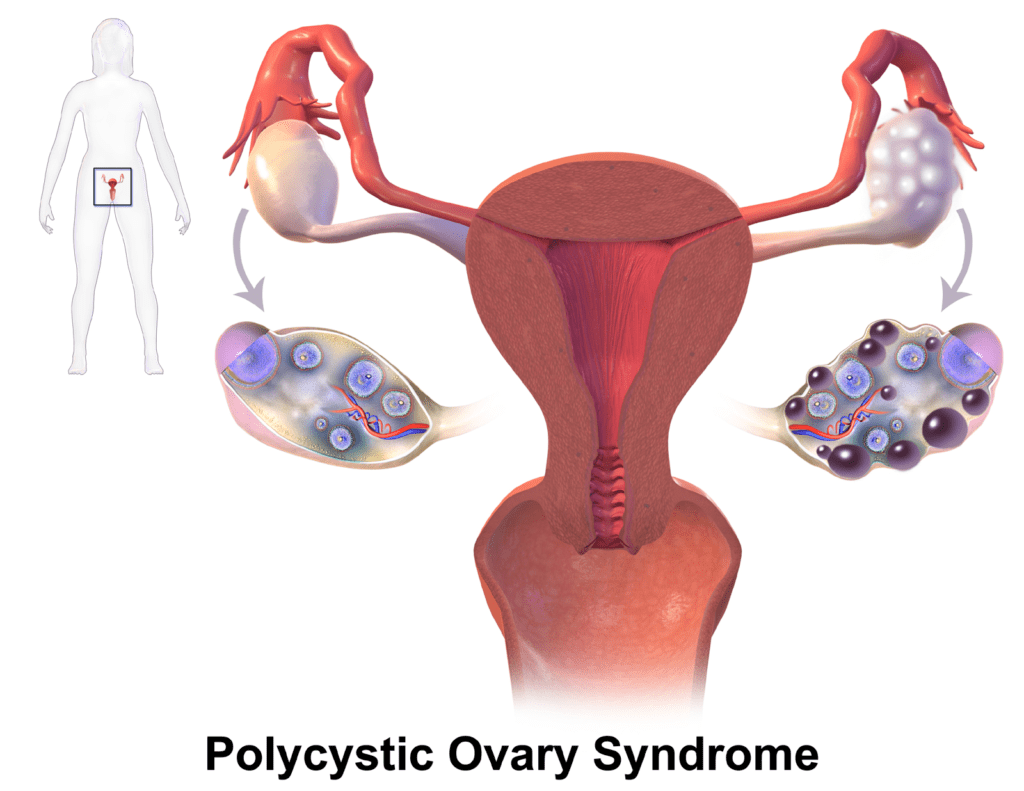
PCOS (Polycystic Ovarian Syndrome)
Important facts to know about PCOS: It is the most common endocrine disorder in women of reproductive age, primarily in the 20-30 age range. 50% of women who have abnormal dark hair growth (face and body) have PCOS. Acne and head hair loss are commonly seen. Both genetic and environmental factors play a role, especially diet and lifestyle. Exposure to testosterone in-utero may be a predisposing factor. EDCs (Endocrine Disrupting Chemicals) are known risk factors. Obesity is present in 30-75% of PCOS patients. Women with irregular menses have a 91% chance of having PCOS. Women with PCOS are 15 times more likely to report infertility. 50% of women with PCOS become pre diabetic or diabetic before age 40. Depression and anxiety are 4 times more prevalent in women with PCOS. An estimated 70% of women who have PCOS go undiagnosed.
Common Diagnostic Factors: Excessive levels of Androgens (Testosterone), Hypothalamus and Pituitary dysregulation causing increased LH (Luteinizing Hormone) levels, decreased Sex Hormone Binding Globulin (SHBG), and Hyperinsulinemia is usually always a factor, elevated blood pressure, elevated cholesterol, increasing elevated Estrogen levels. Ultrasound can show a scalloped-looking outside border in the ovaries.
Menstrual Signs/Symptoms: Irregular menses delayed 35 days or more, heavy menstrual bleeding (menorrhagia). In some cases women may have a complete absence of menstruation for several years. Other symptoms may include: breast pain/tenderness, ovarian pain around time of ovulation, fluctuating mood changes.
Diagnostics: Ordering a detailed full blood panel is of utmost importance and may include Comprehensive Metabolic Panel, Glucose, HgA1c, Fasting Insulin, full Thyroid Panel (9 tests), Lipid Panel, Inflammatory Markers (CRP, Ferritin, etc.).
Our successful PCOS Treatment Program involves (in order):
- Dietary program for weight management, metabolic support, and optimum health
- One month detox emphasizing liver support
- Nutritional supplement program to restore blood sugar dysregulation/Metabolic disorder
- Hormone balancing program emphasizing restoring optimum function in the HPA Axis (Hypothalamus/Pituitary/Adrenal)
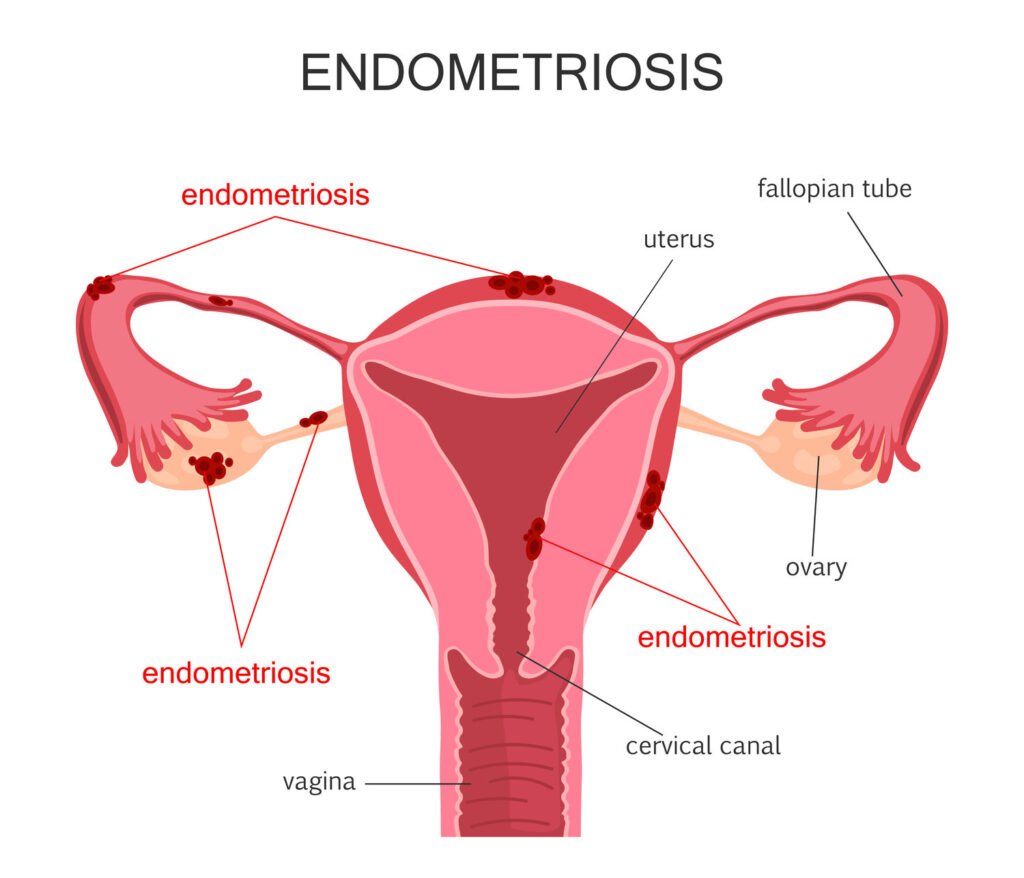
Endometriosis.
Important Facts To Know About Endometriosis: It is estimated to affect between 7% to 10% of women in the US. Many women have Endometriosis yet are asymptomatic. The most common location for displaced uterine tissue growth is the ovaries (75%) followed by: Pouch of Douglas (70%), Posterior Broad Ligament (50%), Uterosacral Ligaments (35%), outside surface of the uterus (10%), and colon (5%). They typically range in size from 2-5 cm, but have been seen as large as 20 cm. The most common clinical and symptomatic manifestations of Endometriosis are infertility and chronic pelvic pain that can be much worse than menstrual cramps. Endometriosis tissue growth within the pelvis commonly appears from 25-30 years of age, whereas growths outside of the pelvis appear in women aged 35-40 years. Endometrial tissue has been found on the gall bladder, kidneys, spleen, lungs, nasal mucosa, stomach, breasts, and even in the Central Nervous System. Studies have shown that women with Endometriosis have a 50% increase in epithelial ovarian cancer.
Other Common Symptoms: frequent pain in the lower back, lower abdominal/groin pain, pain during urination, pain during intercourse, irregular or heavy menstrual bleeding, GI symptoms, fatigue.
Common Risk Factors: family history, uterine or fallopian tube defects, shortened menstrual cycles (<27 days), elongated menstrual flow (>7 days), childbearing in later years, history of pelvic infections, more prevalent in women who have higher than normal estrogen levels, exposure to higher levels of endocrine disruptor chemicals (dioxins, pesticides, PCBs, BPAs, Parabens, Pthalates, solvents, etc.). Dietary contributing factors include consumption of trans fats and low levels of Vitamin D. Studies have also indicated a tendency toward Autoimmune Diseases in patients diagnosed with Endometriosis.
In patients who have a more severe case of Endometriosis, surgery to remove uterine tissue growths may be necessary. We would then recommend, after recovery from surgery, that they go on our nutrition-based restorative program to significantly lower their risk for Endometriosis returning in the future.
Our successful Endometriosis Treatment Program involves:
- Restoration of an optimally balanced Endocrine System while addressing the causative factors of the pathology
- Modify diet to regulate sugar metabolism, decrease processed foods and replace with health-promoting foods
- Restore GI System to optimum function for complete breakdown of proteins, fats, and carbohydrates
- Guidance regarding the awareness and elimination of all Xenohormone (Endocrine Disruptor) chemicals
- One month Liver Detox is essential to escort out hormone disrupting chemicals and maintain healthy hormones
- Strong herbal-based therapies for managing endometrial cells and lesions and for controlling excess Estrogen
